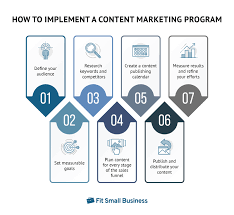Understanding Keywords for Search Engine Optimization
In the world of digital marketing, keywords play a crucial role in Search Engine Optimization (SEO). Keywords are the words or phrases that users type into search engines to find relevant information. By strategically incorporating keywords into your website content, you can improve your site’s visibility and attract more organic traffic.
Types of Keywords
There are several types of keywords that you should be aware of when planning your SEO strategy:
- Short-tail keywords: These are short, generic keywords consisting of one or two words. While they have high search volumes, they also have high competition.
- Long-tail keywords: These are longer, more specific phrases that target a niche audience. They have lower search volumes but higher conversion rates.
- LSI (Latent Semantic Indexing) keywords: These are related terms and synonyms that help search engines understand the context of your content.
Keyword Research
Effective keyword research is essential for a successful SEO strategy. Here are some tips for conducting keyword research:
- Analyse your target audience: Understand your audience’s needs and preferences to identify relevant keywords.
- Use keyword research tools: Tools like Google Keyword Planner, SEMrush, and Ahrefs can help you discover popular keywords and their search volumes.
- Analyse competitor keywords: Study the keywords used by your competitors to gain insights into effective keyword strategies.
Keyword Placement
Once you’ve identified relevant keywords, it’s important to strategically place them within your website content. Here are some key areas where you should include your target keywords:
- Title tags and meta descriptions
- Heading tags (H1, H2, etc.)
- URLs and alt text for images
- In the body content naturally
Remember to avoid “keyword stuffing,” which is the practice of overloading content with too many keywords in an unnatural way. This can harm your SEO efforts rather than benefit them.
In Conclusion
In conclusion, understanding how to effectively use keywords in your SEO strategy is key to improving your website’s visibility and attracting organic traffic. By conducting thorough keyword research and strategically placing relevant keywords within your content, you can enhance your site’s search engine rankings and reach a wider audience online.
Essential FAQs on Keywords for Search Engine Optimisation
- What are keywords for search optimization?
- What are the 4 types of keywords in SEO?
- What are the keywords of search engine?
- What are the 7 key areas of on page optimization that effect search engine optimization?
- What are the 4 types of keywords?
- What are the most popular SEO keywords?
- How to get keywords for SEO?
- How do you write keywords for search engines?
- What are SEO terms?
- What is keyword strategy in search engine optimization?
- How to find keywords for SEO?
- What are key words in search engine optimization?
- What are the 3 types of SEO optimizations?
- What are the 5 important concepts of SEO?
What are keywords for search optimization?
Keywords for search engine optimisation, commonly referred to as SEO keywords, are specific words or phrases that users enter into search engines to find relevant information. In the context of SEO, keywords are strategically selected and incorporated into website content to improve visibility and attract organic traffic. By understanding the importance of choosing the right keywords that align with user intent and search volume, businesses can enhance their online presence and increase their chances of ranking higher in search engine results pages. Proper keyword research and implementation are essential components of a successful SEO strategy aimed at reaching target audiences effectively.
What are the 4 types of keywords in SEO?
In Search Engine Optimization (SEO), there are four main types of keywords that play a crucial role in enhancing a website’s visibility and attracting relevant traffic. These types include short-tail keywords, long-tail keywords, LSI (Latent Semantic Indexing) keywords, and branded keywords. Short-tail keywords are concise and broad terms with high search volumes but intense competition. Long-tail keywords are longer, more specific phrases that target niche audiences and often result in higher conversion rates. LSI keywords are related terms and synonyms that help search engines understand the context of content better. Lastly, branded keywords incorporate the brand name or specific product names to enhance brand visibility and attract users already familiar with the brand. Understanding and effectively utilising these different types of keywords is essential for a successful SEO strategy.
What are the keywords of search engine?
When it comes to Search Engine Optimization (SEO), a frequently asked question is, “What are the keywords of search engine?” This question often arises from a misunderstanding of the term “keywords” in the context of SEO. In SEO, keywords refer to the specific words or phrases that users input into search engines to find relevant content. Search engines themselves do not have keywords; instead, website owners and marketers use keywords strategically within their content to improve their visibility in search engine results pages. By selecting and optimising the right keywords for their target audience, businesses can enhance their online presence and attract organic traffic from search engines.
What are the 7 key areas of on page optimization that effect search engine optimization?
One frequently asked question in the realm of search engine optimisation is: “What are the 7 key areas of on-page optimisation that affect search engine optimisation?” On-page optimisation plays a crucial role in improving a website’s visibility and search engine rankings. The 7 key areas include meta tags, URL structure, heading tags, content quality, internal linking, image optimisation, and mobile responsiveness. By focusing on these aspects and ensuring they are optimised effectively with relevant keywords, website owners can enhance their SEO efforts and attract more organic traffic to their sites.
What are the 4 types of keywords?
When it comes to Search Engine Optimization (SEO), understanding the different types of keywords is crucial for a successful digital marketing strategy. One frequently asked question is, “What are the 4 types of keywords?” The four main types of keywords include short-tail keywords, long-tail keywords, LSI (Latent Semantic Indexing) keywords, and branded keywords. Short-tail keywords are concise and general terms with high search volumes but also high competition. Long-tail keywords are more specific phrases that target niche audiences with lower search volumes but higher conversion rates. LSI keywords are related terms that help search engines understand content context, while branded keywords include a brand name or variations thereof. By utilising a combination of these keyword types strategically, businesses can enhance their online visibility and attract relevant traffic to their websites.
What are the most popular SEO keywords?
When it comes to the frequently asked question of “What are the most popular SEO keywords?”, it’s important to understand that the popularity of keywords can vary depending on factors such as industry, target audience, and current trends. Popular SEO keywords are typically those that have high search volumes and competition. Common examples include generic terms related to popular topics or products. However, it’s crucial for businesses to conduct thorough keyword research specific to their niche in order to identify the most effective keywords for their Search Engine Optimization (SEO) strategy. By focusing on relevance and user intent, businesses can choose keywords that will drive targeted traffic and improve their online visibility.
How to get keywords for SEO?
One of the most frequently asked questions in Search Engine Optimization (SEO) is how to get keywords for SEO. Getting keywords for SEO involves a strategic process of researching and selecting relevant words and phrases that users are likely to type into search engines when looking for information related to your website or business. To obtain effective keywords for SEO, it is essential to conduct thorough keyword research using tools such as Google Keyword Planner, SEMrush, and Ahrefs. By analysing your target audience, studying competitor keywords, and identifying high-ranking keywords with moderate competition, you can create a strong foundation for your SEO strategy and improve your website’s visibility in search engine results pages.
How do you write keywords for search engines?
When it comes to writing keywords for search engines, the key is to conduct thorough research and understand your target audience’s search behaviour. Start by identifying relevant short-tail and long-tail keywords that align with your content and are likely to be searched by users. Utilise keyword research tools to discover popular keywords and their search volumes. Once you have a list of target keywords, strategically incorporate them into your website content, including title tags, meta descriptions, headings, URLs, and body text. Remember to avoid keyword stuffing and focus on creating high-quality, engaging content that naturally integrates your chosen keywords. By following these steps, you can effectively write keywords for search engines and improve your website’s visibility in search engine results pages.
What are SEO terms?
SEO terms, also known as search engine optimization terms, refer to the specific words or phrases that are strategically selected and incorporated into website content to improve its visibility on search engine results pages. These terms play a vital role in helping search engines understand the relevance of a website to specific queries made by users. By including relevant SEO terms in their content, website owners can increase their chances of ranking higher in search results and attracting organic traffic to their sites. Understanding and effectively using SEO terms is essential for a successful SEO strategy that aims to enhance online visibility and reach a wider audience.
What is keyword strategy in search engine optimization?
A keyword strategy in search engine optimization (SEO) refers to the systematic approach taken by website owners and digital marketers to select, target, and utilise specific keywords that are relevant to their content and audience. This strategy involves conducting thorough keyword research to identify the most effective keywords for improving a website’s search engine rankings and attracting organic traffic. By developing a well-defined keyword strategy, businesses can enhance their online visibility, increase website traffic, and ultimately drive conversions. Effective keyword strategies involve not only selecting the right keywords but also strategically placing them within website content to ensure optimal SEO performance.
How to find keywords for SEO?
When it comes to Search Engine Optimization (SEO), a common question that arises is, “How to find keywords for SEO?” Finding keywords for SEO involves conducting thorough keyword research to identify the most relevant and effective terms and phrases that your target audience is likely to use when searching for information online. By utilising keyword research tools, analysing competitor keywords, and understanding your audience’s needs and preferences, you can discover valuable keywords to incorporate into your website content. Effective keyword research is essential for enhancing your site’s visibility, attracting organic traffic, and improving your search engine rankings.
What are key words in search engine optimization?
Key words in search engine optimisation, commonly known as SEO, refer to specific words or phrases that are strategically chosen and incorporated into website content to improve its visibility on search engine results pages. These key words are crucial for attracting organic traffic to a website, as search engines use them to determine the relevance of a webpage to a user’s search query. By conducting thorough keyword research and strategically placing these key words within website content, businesses can enhance their online presence and increase their chances of ranking higher in search engine results.
What are the 3 types of SEO optimizations?
When it comes to Search Engine Optimization (SEO), there are three main types of optimizations that are commonly used to improve a website’s visibility and ranking on search engine results pages. These include on-page SEO, off-page SEO, and technical SEO. On-page SEO focuses on optimizing individual web pages with relevant content, meta tags, and keyword placement. Off-page SEO involves building quality backlinks from external websites to enhance a site’s authority and credibility. Technical SEO, on the other hand, deals with the backend aspects of a website such as site speed, mobile-friendliness, and structured data markup to ensure optimal performance and user experience. By incorporating all three types of SEO optimizations into a comprehensive strategy, businesses can effectively boost their online presence and attract more organic traffic.
What are the 5 important concepts of SEO?
When it comes to Search Engine Optimization (SEO), understanding the five important concepts is crucial for improving your website’s visibility and ranking on search engine results pages. These concepts include keyword research and implementation, on-page optimization, off-page optimization, technical SEO, and user experience. Keyword research helps identify relevant terms to target in your content, while on-page optimization involves optimizing meta tags, headings, and content. Off-page optimization focuses on building backlinks and improving domain authority. Technical SEO ensures that your site is easily crawlable by search engines, while user experience enhances visitor engagement and retention on your site. Mastering these five concepts is essential for a successful SEO strategy.




